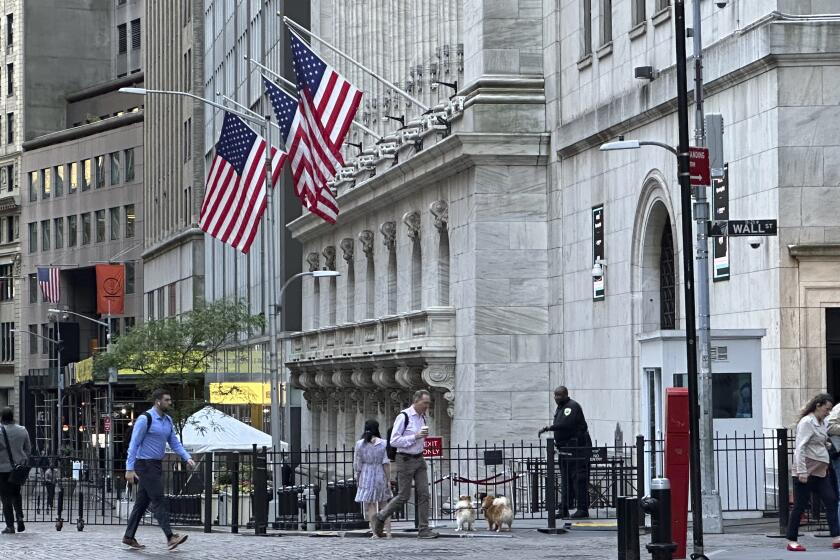Factory Groups Unite Against Trade Accord
A coalition of 23 manufacturing associations announced their opposition Tuesday to the Central American Free Trade Agreement amid a growing preoccupation with competition from China.
Three business executives and representatives from trade associations representing 18,000 companies said at a news conference on Capitol Hill that their campaign against CAFTA reflected a broader disenchantment with trends in U.S. trade.
Fighting CAFTA “is the stake in the ground,” said David Frengel, vice president for government relations at Penn United Technology Inc. a toolmaker in Cabot, Pa. The current trade deals are a “suicide pact,” he said in an interview.
For the companies involved, CAFTA is a microcosm of a larger debate about last year’s record $617-billion U.S. trade deficit, the threat of competition from China manufacturers, the resiliency of the U.S. economy and the loss of nearly 3 million American factory jobs in the last decade.
Frengel and the other executives say they want a halt in the negotiation of all new trade agreements and instead want the U.S. trade office to concentrate on enforcing current deals, such as getting China to raise the value of its currency and end subsidies to state-run companies. They join the textile and sugar industries, as well as labor unions, in opposing CAFTA.
Still, U.S. companies aren’t united in their opposition.
The U.S. Chamber of Commerce is scheduled to bring more than 30 representatives of small businesses to Washington today -- as well as executives from 3M Co. and Coca-Cola Co. -- to lobby lawmakers in support of CAFTA. They say the trade accord offers the best tool to help U.S. companies compete with China.
CAFTA would end most tariffs on more than $33 billion in goods traded between the U.S. and Costa Rica, the Dominican Republic, El Salvador, Guatemala, Honduras and Nicaragua. It would also allow a 50% increase in sugar imports into the U.S., phased in over 15 years, and make permanent the duty-free access to the U.S. that most products from Central America have.
After securing the support of the main trade committees in both houses of Congress last week, the Bush administration said it might send the legislation to implement CAFTA to Congress as early as this week.






